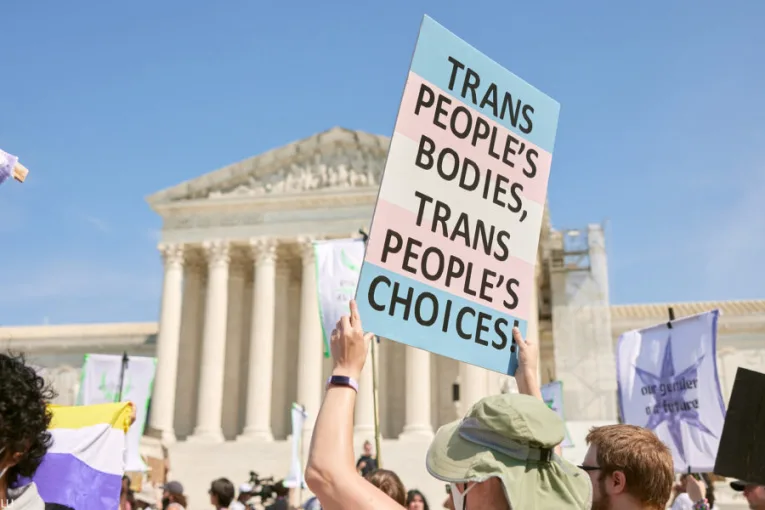
Navin Kariyawasam, a trans physician, and explains why trans adolescents must have the autonomy and power to make decisions about their bodies without political interference and with the support of family and their health care providers.
From a young age, I enjoyed playing around with gender roles, but it wasn’t until later in my adolescence that I started to have more complex thoughts about my gender identity. What I discovered, both in my childhood and later in my development, was that a lot of trans folks have similarly nonlinear approaches, or nonlinear journeys, to their trans lives. There were moments I was very attached to my femininity, and moments where I felt more masculine. Getting to exist on either side of this gender binary – and explore the middle ground between them – was invaluable.
However, as I was navigating this complex development, I did not have adults in my life to whom I could turn for guidance and support with my gender. When I was younger, I didn’t have access to the doctors or health care providers who could help me access gender affirming care – or just talk to me about my gender. That’s why, as a trans person and as a physician, I know just how important it is for young people and their families to be able to talk to trusted health care providers about the uncertainties they’re facing or the questions they have.
In my work, I’ve found that speaking with young people about their gender leads to really fruitful conversations about concerns or curiosities that they may have. But medical care, and health care more broadly, isn’t just about questions and answers. It’s about making space for complex conversations that let young people and their families know we can go on this path of self discovery together.
Adolescence is a time during which many start figuring out who they are, and it’s exciting to see young people question the structures of our society, including the structures of gender. But too often we underestimate young people’s ability to introspect, and we question them when they tell us who they are. As a physician, I am not looking to “diagnose” a gender, but to support young people, and their families, as they figure out their sense of self. No one makes the decision to seek out gender-affirming care on a whim. To those who consider gender-affirming care a drastic decision, I have seen that it is in fact something that is carefully considered by young people, their families, and their provider. And that is who should get to make those decisions. Governments should not be allowed to make decisions about our bodies, and the proliferation of gender-affirming care bans is not only deeply transphobia, but also sets a dangerous precedent.
Right now, this medically-necessary care is being maligned by pseudoscience, fear, and bigotry. We know these treatments are safe. We also know that young people can end up changing their minds. That’s also something that’s safe to do. We’ve been offering the same therapies for youth who are not transgender for a long time. It only seemed to cause a political problem when it started affecting trans folks.
Every single patient that approaches care, both in a gender-affirming context and in all other medical contexts, has a very individual story, has very individual goals, and has a very specific context in which they might be seeking that care. What I’m really hoping for is a world where trans adolescents have the autonomy and power to make decisions about their bodies without political interference and with the support of family and their health care providers. For me, that is a world where we really celebrate transness for the beauty that I think it is.